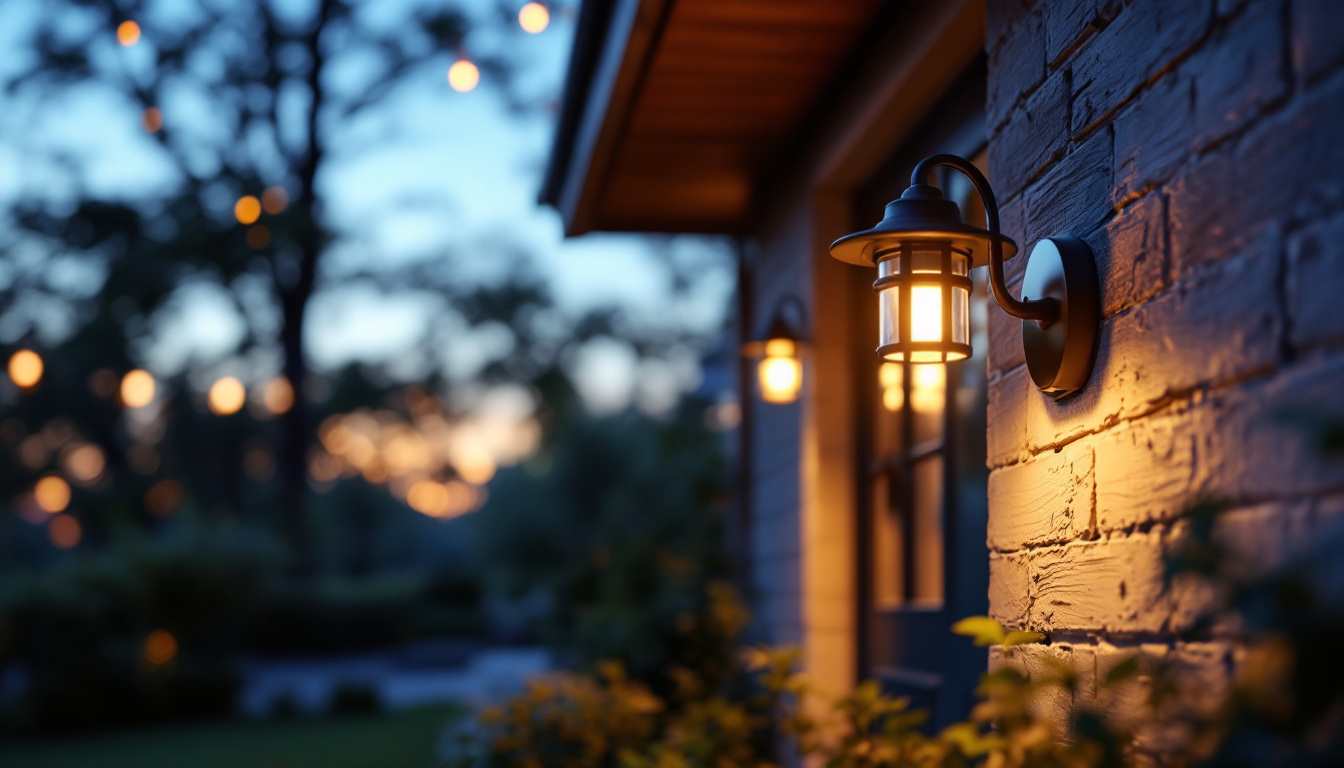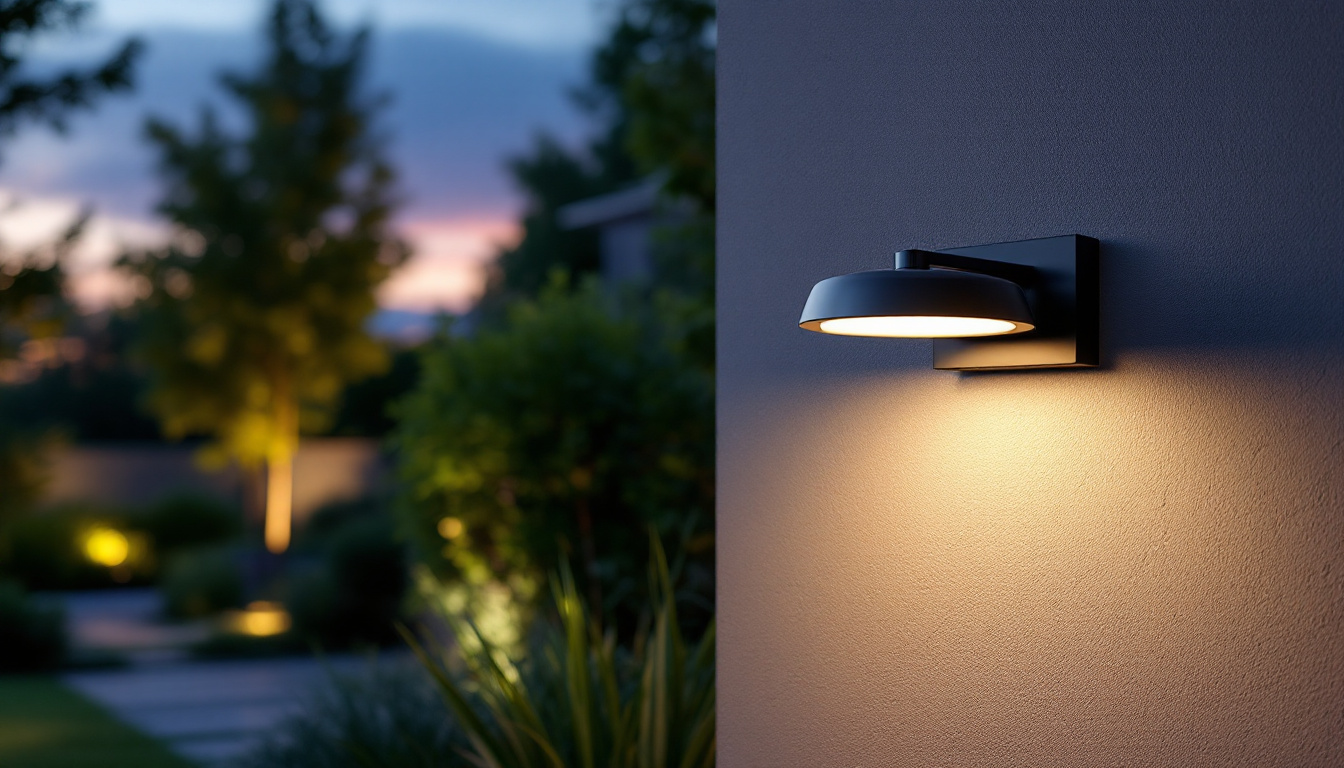
As the demand for sustainable and energy-efficient solutions grows, solar-powered porch lights have become increasingly popular among homeowners. However, lighting contractors often encounter challenges when installing these systems. Understanding common mistakes can help ensure successful installations and satisfied clients. This article explores frequent pitfalls lighting contractors may face while working with solar-powered porch lights, providing insights to enhance their expertise and service quality.
One of the most critical aspects of solar-powered lighting is the orientation of the solar panels. Many contractors fail to position panels in a way that maximizes sunlight exposure. Ideally, panels should face south to capture the most sunlight throughout the day. Neglecting this can lead to inadequate charging and diminished light output, frustrating homeowners who expect reliable performance.
Additionally, shading from nearby trees, buildings, or other structures can significantly impact the efficiency of solar panels. Contractors must assess the installation site carefully, considering potential obstructions that could block sunlight. A thorough site evaluation ensures optimal panel placement and enhances the overall effectiveness of the solar lighting system. Furthermore, seasonal changes in the sun’s path can also affect performance; thus, it’s essential to consider how the angle of sunlight varies throughout the year. By utilizing tools such as solar pathfinders or simulation software, contractors can better predict and plan for these variations, ensuring that the solar panels receive maximum exposure year-round.
Another common mistake involves underestimating the importance of battery capacity and type. The battery is the heart of a solar-powered light system, storing energy for nighttime use. Contractors often choose batteries based solely on cost, overlooking specifications that align with the light’s energy requirements.
For instance, using a battery with insufficient capacity can lead to shorter operational hours, especially during cloudy days or winter months. On the other hand, opting for a higher-capacity battery without considering the solar panel’s output can result in wasted resources. Contractors should ensure a balanced system by selecting batteries that match the energy production capabilities of the solar panels. Moreover, the choice of battery technology—whether lithium-ion, lead-acid, or nickel-cadmium—can also influence performance and longevity. Lithium-ion batteries, for example, offer higher energy density and longer life cycles, making them a popular choice for modern solar applications. Understanding the specific advantages and limitations of each battery type allows contractors to make informed decisions that enhance the reliability and efficiency of solar lighting systems, ultimately leading to greater customer satisfaction and reduced maintenance costs.
proper installation techniques are crucial for the longevity and functionality of solar-powered porch lights. Contractors sometimes rush the mounting process, leading to misalignment or insecure fittings. Lights that are not mounted correctly can become loose over time, resulting in malfunction or even damage to the unit.
To avoid these issues, contractors should follow manufacturer guidelines closely and use appropriate mounting hardware. Additionally, ensuring that the lights are securely fastened to a stable surface can prevent future problems. Taking the time to perform a meticulous installation can save both time and money in the long run. Moreover, it is essential to consider the angle and height at which the lights are installed. Proper positioning not only enhances the aesthetic appeal of the porch area but also maximizes the solar panel’s exposure to sunlight, thereby improving the lights’ efficiency and performance.
Weatherproofing is another critical aspect that contractors sometimes overlook. Solar-powered porch lights are designed to withstand various weather conditions, but improper installation can compromise their durability. Failing to seal joints or using non-weather-resistant materials can lead to water ingress, causing electrical failures or corrosion.
Contractors should prioritize using weatherproof components and sealing techniques to protect the solar lights from moisture and debris. Regular maintenance checks can also help identify potential issues before they escalate, ensuring the longevity of the installation. Additionally, choosing lights with a higher IP (Ingress Protection) rating can provide an extra layer of assurance against the elements. This rating indicates the level of protection against dust and water, making it a vital consideration for installations in areas prone to heavy rain or snow. By investing in quality products and taking weatherproofing seriously, contractors can significantly enhance the reliability and lifespan of solar-powered porch lighting systems.
In an effort to cut costs, some contractors may choose low-quality solar lighting products. While these options may initially appear budget-friendly, they often result in poor performance and frequent replacements. Low-quality solar lights may have inferior batteries, inefficient solar panels, or flimsy construction, leading to dissatisfaction among clients. Additionally, these products can fail to provide adequate illumination, leaving outdoor spaces dim and uninviting, which defeats the purpose of enhancing safety and aesthetics.
Investing in reputable brands and high-quality components is essential for delivering reliable solar lighting solutions. Contractors should research and select products known for their performance and durability, ensuring clients receive value for their investment. Furthermore, high-quality solar lights often come with better warranties and customer support, which can be invaluable for contractors looking to maintain a good reputation. By choosing superior products, contractors not only enhance the longevity of their installations but also foster positive word-of-mouth referrals from satisfied clients.
Every client has unique preferences and requirements when it comes to outdoor lighting. Contractors sometimes make the mistake of recommending standard solutions without fully understanding the client’s needs. This can lead to mismatched expectations and dissatisfaction with the final result. For instance, a client may be looking for solar lights that not only illuminate a pathway but also complement the architectural style of their home, which requires a more tailored approach than simply suggesting the most popular models on the market.
To avoid this pitfall, contractors should engage in thorough discussions with clients to assess their specific needs. Factors such as desired brightness, aesthetic preferences, and intended usage should be considered when recommending solar-powered porch lights. Tailoring solutions to client preferences not only enhances satisfaction but also builds trust and long-term relationships. Additionally, contractors can provide clients with visual aids, such as samples or design mock-ups, to help them envision how different lighting options will look in their space. This collaborative approach can lead to more successful projects and a stronger partnership between contractors and clients.
After installation, clients may require guidance on maintaining their solar-powered porch lights. Contractors sometimes neglect to provide this information, leading to potential issues down the line. Without proper maintenance, solar lights may not perform optimally, resulting in client frustration.
Contractors should offer clear maintenance instructions, including tips on cleaning solar panels, checking battery health, and ensuring proper functionality. Providing this information empowers clients to take care of their solar lights, prolonging their lifespan and enhancing overall satisfaction. Additionally, educating clients on the importance of seasonal checks can prevent performance drops during winter months when sunlight is scarce. For instance, advising homeowners to clear debris or snow from solar panels can significantly improve energy absorption, ensuring that the lights remain functional even in less favorable weather conditions.
Another common mistake is not discussing warranty options and post-installation support with clients. Many homeowners expect warranties on their purchases, especially for solar-powered products. Contractors who overlook this aspect may miss out on building trust and credibility with their clients.
Offering a warranty not only protects the client’s investment but also demonstrates confidence in the quality of the installation. Additionally, providing ongoing support and being available for questions or concerns can foster positive relationships and lead to repeat business and referrals. It’s also beneficial for contractors to create a structured follow-up plan, reaching out to clients after installation to ensure they are satisfied and to address any potential issues early on. This proactive approach can enhance customer loyalty and encourage clients to share their positive experiences with friends and family, ultimately expanding the contractor’s client base through word-of-mouth recommendations.
Lighting contractors must be aware of local codes and regulations regarding solar installations. Some contractors may overlook these requirements, leading to compliance issues that can delay projects or incur fines. Understanding zoning laws, electrical codes, and permitting processes is essential for a smooth installation.
Contractors should stay informed about local regulations and ensure that all installations meet necessary standards. This not only protects the contractor from potential legal issues but also assures clients that their installation is safe and compliant.
Many regions offer incentives or rebates for solar installations, which can significantly reduce costs for homeowners. Contractors who fail to inform clients about these opportunities may miss out on a chance to enhance the appeal of solar-powered porch lights.
By staying updated on available incentives, contractors can provide valuable information to clients, making solar solutions more attractive. This knowledge can also position the contractor as an expert in the field, fostering trust and encouraging clients to choose solar options.
Solar-powered porch lights present a fantastic opportunity for lighting contractors to offer sustainable solutions to their clients. However, avoiding common mistakes is crucial for ensuring successful installations and satisfied customers. By understanding solar technology, implementing proper installation techniques, selecting quality products, providing maintenance guidance, and staying informed about regulations and incentives, contractors can enhance their services and build lasting relationships with clients.
Ultimately, the key to success lies in attention to detail, effective communication, and a commitment to delivering high-quality solar lighting solutions. By addressing these common pitfalls, lighting contractors can position themselves as trusted experts in the growing field of solar-powered lighting, paving the way for a brighter, more sustainable future.
Ready to elevate your solar lighting installations and avoid the common pitfalls? LumenWholesale is here to support you with spec-grade, top-quality lighting products that meet the highest industry standards. Say goodbye to middleman markups and hello to unbeatable wholesale prices. With our hassle-free bulk buying and free shipping, you can ensure your projects shine with reliability and performance, all while keeping costs down. Don’t compromise on quality or value; choose LumenWholesale for your lighting needs. Wholesale Lighting at the Best Value is just a click away.

Explore the transformative impact of warehouse lighting fixtures in modern lighting solutions.

Discover the essential insights lighting contractors need to know about flat panel LED technology.

Discover how modern exterior lamps are revolutionizing lighting contractors’ projects by enhancing aesthetics, improving energy efficiency, and meeting client demands for innovative outdoor illumination solutions..

Discover expert tips on Dd00R-Dlz to avoid costly mistakes in lighting projects.